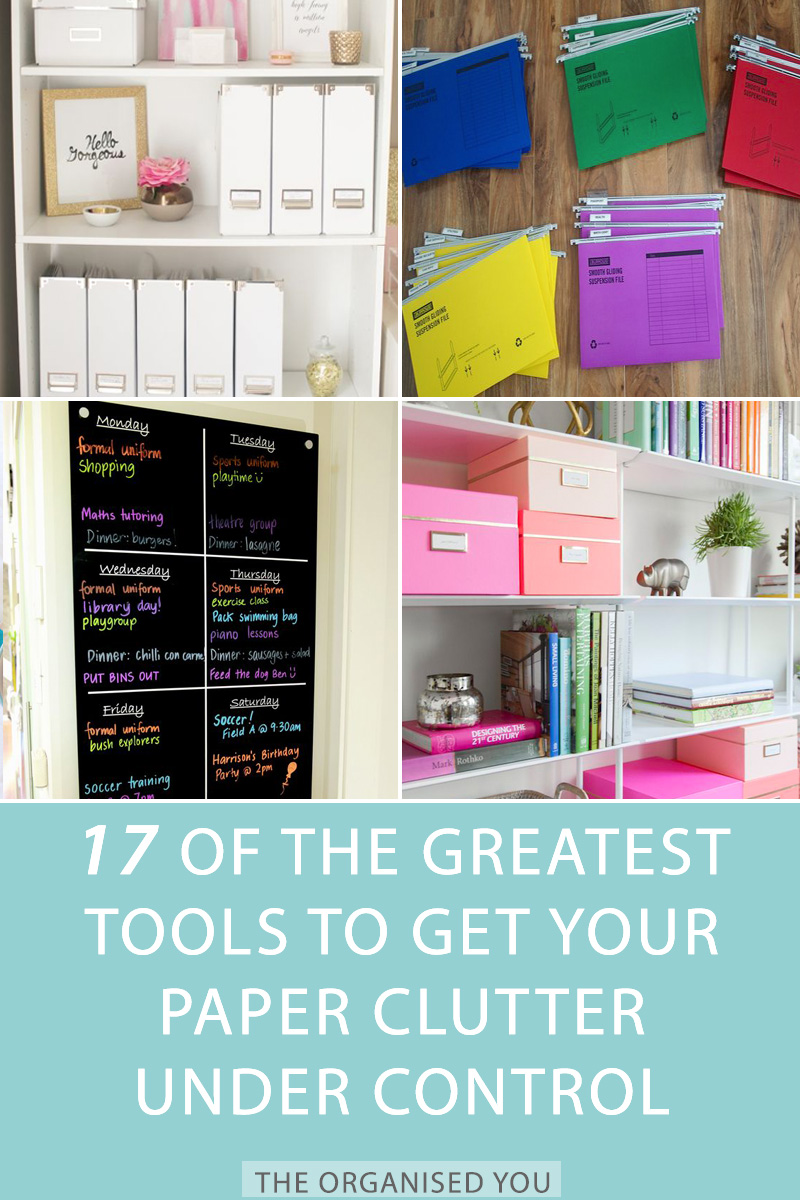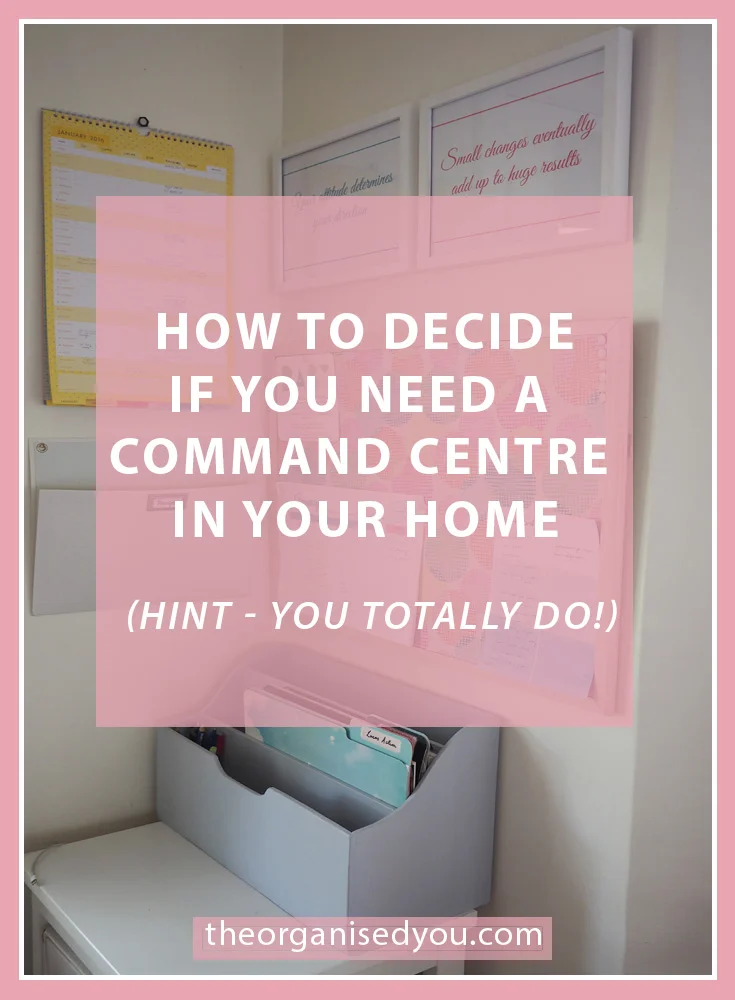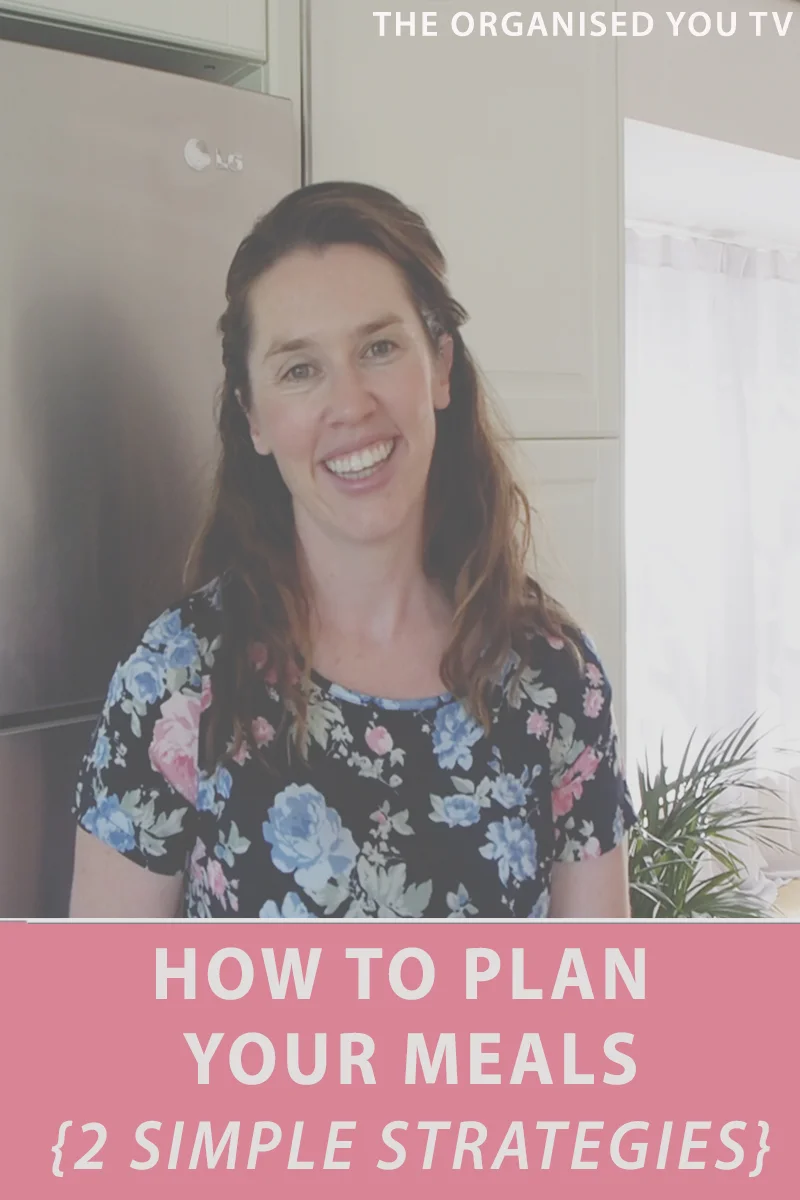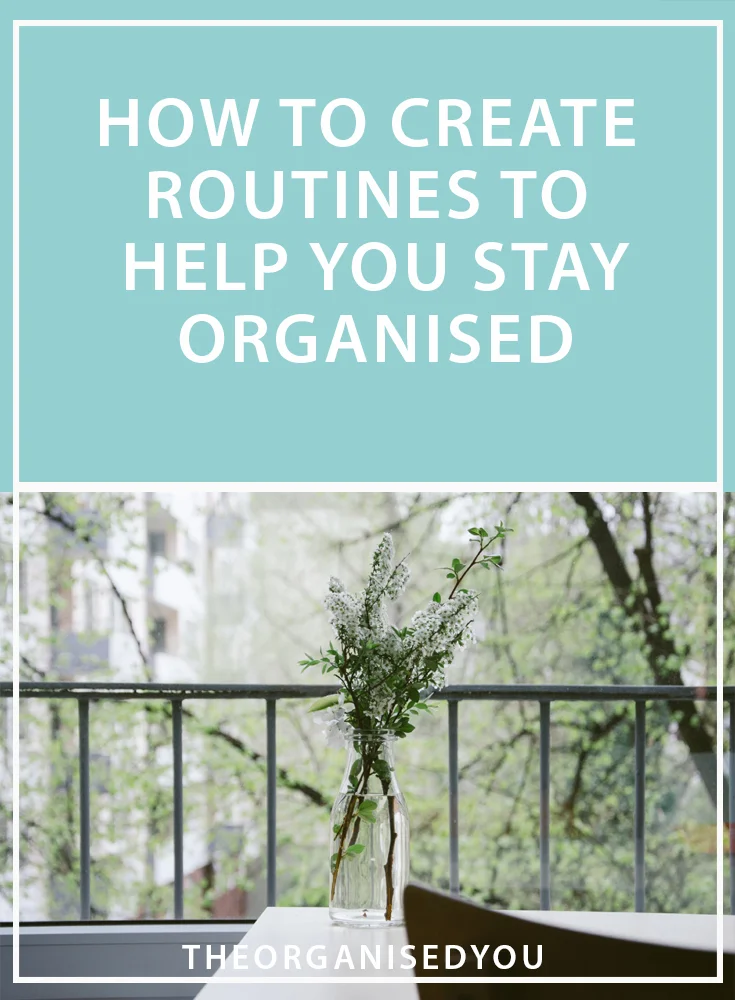If you had to name one thing that would help you become more organised and productive, my guess is your answer would be more time. Something that most of us never seem to have enough of! Time is one of those things that seems to just slip through your fingers without having any control over it.
Unfortunately, conjuring up a 26 hour day just isn't possible! But there are a variety of time management tips and strategies that will encourage you to be more productive and use your time more wisely. Today I'm sharing 13 of these time management strategies that you can start implementing today!
Want to learn the step-by-step process for tackling the decluttering of any space in your home? Check out my online course 'Chaos to Calm'! >>
How to gain more time:
1 | Prepare the night before
Be prepared for the next day by creating a plan the night before that details how you will use your time. This way, you'll know exactly what you need and want to accomplish, rather than wasting time wondering which task you should start with.
Create your to-do list by prioritizing your top 3 most important tasks. To make it even more specific, put the most important job first (that 'frog' you really need to swallow!), and focus solely on getting that task completed first. Try to avoid multi-tasking or jumping between the 3 top tasks.
Once you've got through your number 1 priority, you can move onto the second and third tasks on your list. If you don't get through them all (which is inevitable on busier days), then make them your priorities for the following day.
Related Post: 8 simple steps to planning your week to achieve your goals
2 | Set time limits
If you added up how long you actually spent on certain activities, you might be shocked at the amount of time some of them actually use up.
These 'time-wasters' can include activities such as social media, watching TV, surfing the Internet... Of course, it's important to be able to relax and have down time, but if you've got lots of things you're wanting to accomplish, these past-times can be a real time suck.
Monitor the time you spend on these activities, especially if you've got lots of things on your list of to-do's. Try setting a timer to ensure you leave yourself enough time to move onto the more important things.
3 | Check it once and deal with it
When it comes to reading and sorting emails, responding to calls or messages, or dealing with daily paperwork - it really does pay to deal with and handle it just once.
If you take instant action by reading, responding, deleting, filing or actioning, it means you don't have to come back to the task again because it is done. Out of sight, out of mind!
Related Post: Dealing with the paper clutter
4 | Multi-task when possible
Multi-tasking can often be seen as an unproductive strategy because it takes the focus off your priority task (see point number 1). But it can actually be a great way to more efficiently get through those smaller jobs that don't require a great deal of focus switching.
The aim of multi-tasking is that you should be able to focus on both tasks without being completely distracted from one by the other.
This may include helping your child with homework while you fold laundry; reading and responding to emails while you're on the train or waiting to pick up the kids from school; putting on a load of washing while making a phone call; or quickly sorting through and categorizing the daily mail while cooking dinner.
You could also multi-task with household chores by starting one and then doing another while it 'does its thing'. For example, put on a load of washing, then clean the bathroom and laundry. The washing should be done by the time you complete these chores so you can then hang out the clean clothes.
5 | Cut down on chores
It's a good idea to aim to do one 'chore-related' job every day. Doing something on your house every day means it will always be tidy (it doesn't need to be spotlessly clean every day!), and doesn't get to an overwhelming state.
Tidy up at the end of the day by putting away visible clutter, cleaning up in the kitchen, doing the dishes, and dealing with dirty laundry. Give yourself a fresh start for the next day. Maintaining your organised systems each day will also reduce the need for having to do a huge overhaul of your systems or major decluttering sessions.
Related Post: How to stay on top of household chores
6 | Ask for help and delegate
It's a big task to try and do everything involved with running a household and raising a family on your own.
Delegating appropriate tasks to family members, including your children, is absolutely necessary to share the load and keep your sanity. Plus it provides you with more time to focus on the tasks that you want and need to accomplish. Don't be afraid to ask for help if you need it - you never know if you never ask!
Learn how to restore calm and balance to your life with my step-by-step online course 'Chaos to Calm'. I'll be with you every step of the way! Learn more here >>
7 | Have a place for everything
How much time have you wasted looking for different items throughout your home - searching for important paperwork or phone numbers, your keys, wallet, glasses, a specific toy or book... all that time spent searching really does add up!
Keeping your personal spaces clutter-free and having a home for every item means you'll always know where to find things, and therefore avoid wasting your time. It will also encourage you to better manage your time when you're in a hurry, thus helping you feel less stressed.
8 | Schedule your to-do's and stick to the schedule
Having specific days for when you complete set tasks will not only help them become habits, it will also provide a clear focus for productivity!
For example, you could do your banking and bill-paying on a Monday, meal planning on Tuesday, grocery shopping on Wednesday, filing on Thursday and paperwork-related tasks on Friday. The same sort of schedule could be created in relation to chores such as vacuuming, mopping, dusting etc.
These are just example schedules, so go ahead and create ones that would work for you and your weekly schedule. Mark on your calendar, your planner or diary so you have that visual reminder which you'll be encouraged to stick to.
9 | Get up earlier
Not what you want to hear, I know! But if you're really feeling you don't have enough time in the day for those smaller but time-consuming and necessary tasks, then getting up a half hour or even hour earlier than the rest of your family members can provide a lot of benefits.
You can prepare for the day in a calm way by getting yourself ready before everyone else is up. You can then make your way through a few tasks such as paperwork, packing lunch-boxes, completing an online grocery order, or responding to letters or emails... without any interruptions or distractions.
It will help to create more calm to the rest of your day too, as you'll be feeling productive and on top of things before the day has even started!
10 | Learn to say no!
Consider the activities and tasks in your life that you're spending valuable time on that you could possible live without. By doing less and being more selective about which activities actually give you the greatest benefits, you'll end up creating extra time for the more important things in life.
11 | Automate your finances
Automating your bill-paying by setting up a monthly direct debit will not only save you time opening bills, scheduling reminders, and physically paying bills, it will also free up head space to stop thinking about when payments are due. You should definitely still keep track of how your finances are traveling, but not having to think about this step can be a huge time-saver.
Related Post: Are you ready to get your finances organised?
12 | Let go of perfectionism
Because perfectionism relies on having everything done perfectly, it can be a sure-fire recipe for never getting through your tasks and always feeling like you're running behind. Recognising when good enough is enough is all about finding that balance in your daily approach. Try not to focus too much on the finer details as things will only take longer to accomplish.
13 | Get a good night's sleep
Every time we add another task or responsibility to our lives, we have to find that time somewhere. This often means late nights or not getting a good night's sleep because we're constantly cycling through our to-do list.
It's not possible to be productive if you're so exhausted you can't focus properly. Sticking to a sensible bedtime routine that allows you to get 8 hours of sleep will ensure you're ready for what lies ahead for the following day!































